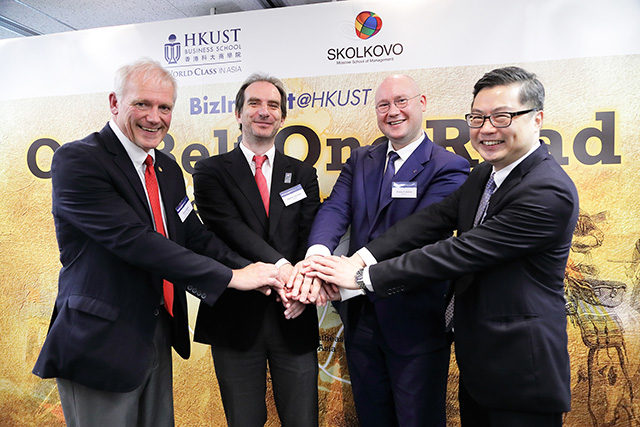On July 20, Alexey Kalinin, Director of the Moscow School of Management SKOLKOVO Institute for Emerging Market Studies (IEMS), and Vladimir Korovkin, Head of IEMS Innovations and Digital Research, participated in the latest talk on “One Belt, One Road” initiative-related topics organized by the HKUST Business School.
During the talk the experts discussed the impact of China’s ambitious “One Belt, One Road” initiative on countries in Central Asia and challenges that lie ahead.
Alexey Kalinin explained key aspects of the geo-economics of the Eurasian heartland, pointing out that the countries there are far from being “unified” in terms of outlook or priorities.
“You have to remember that these landlocked countries in Central Asia didn’t exist before the collapse of the Soviet Union,” Kalinin said. “Some are still going through internal transitions, which increase uncertainty. So, as part of the ‘One Belt, One Road’ initiative, there is a need to build up the institutional base to help political transitions and to support intra-regional processes to manage security risks, border conflicts and migration.”
Vladimir Korovkin highlighted the importance of a strategic approach to migration in order to capitalise on the opportunities for economic growth. For the good of all, countries had to be clear - and fair - in formulating policies relating to immigrants, gastarbeiters (guest workers) and integration.
“Modern migration is a highly competitive global market and it is multidimensional,” Korovkin said. “There is no “one size fits all solution”, but we can see that ‘cherry picking’ of highly skilled and/or wealthy migrants does not work. The recipient countries need to learn to integrate migration en masse to boost the growth in their economies, with focus on issues of mutual understanding and trust.”
Read the full article: South China Morning Post
